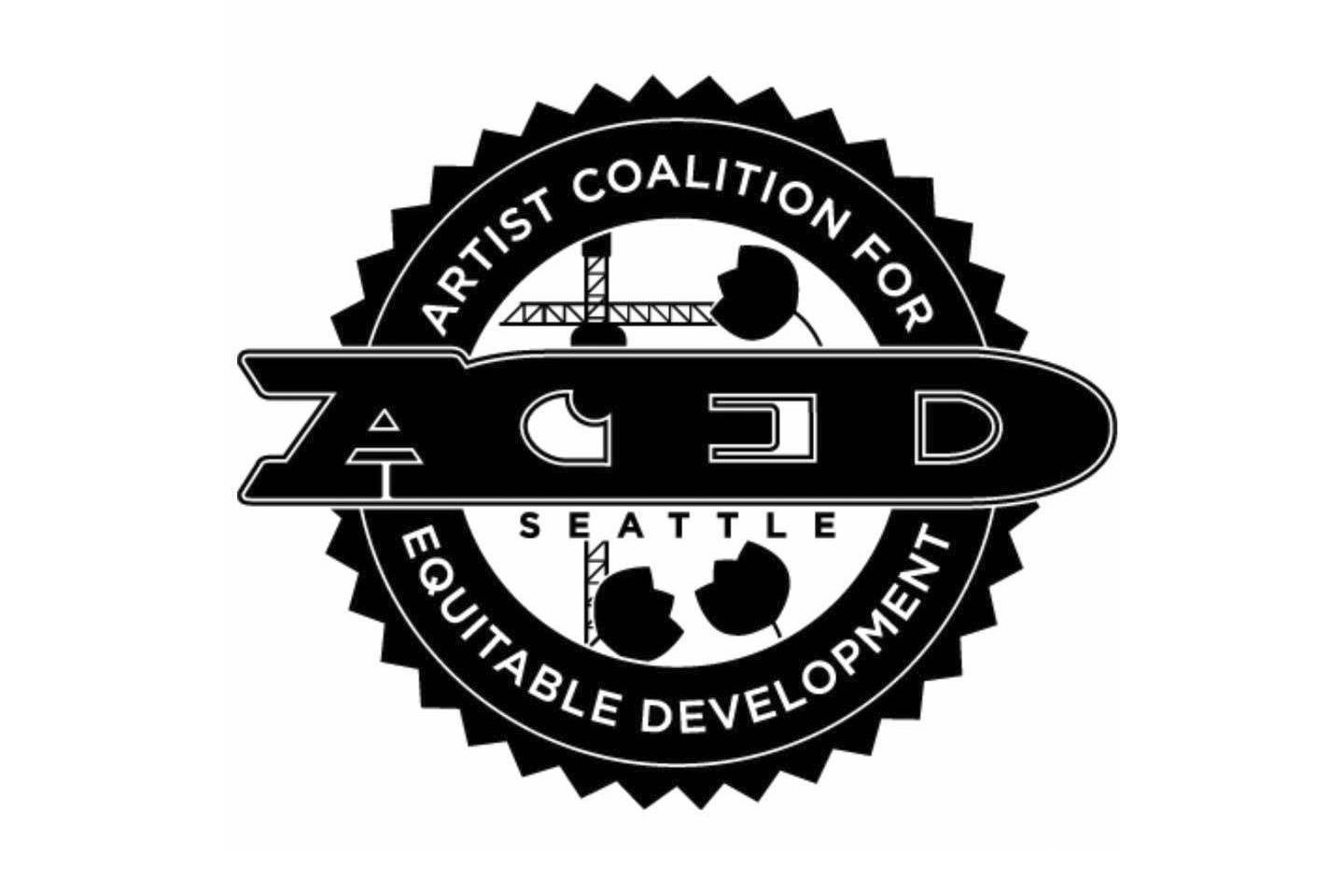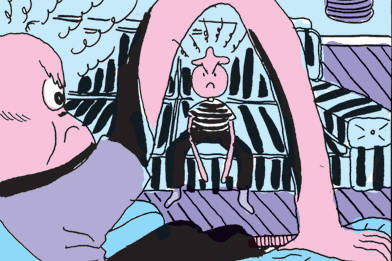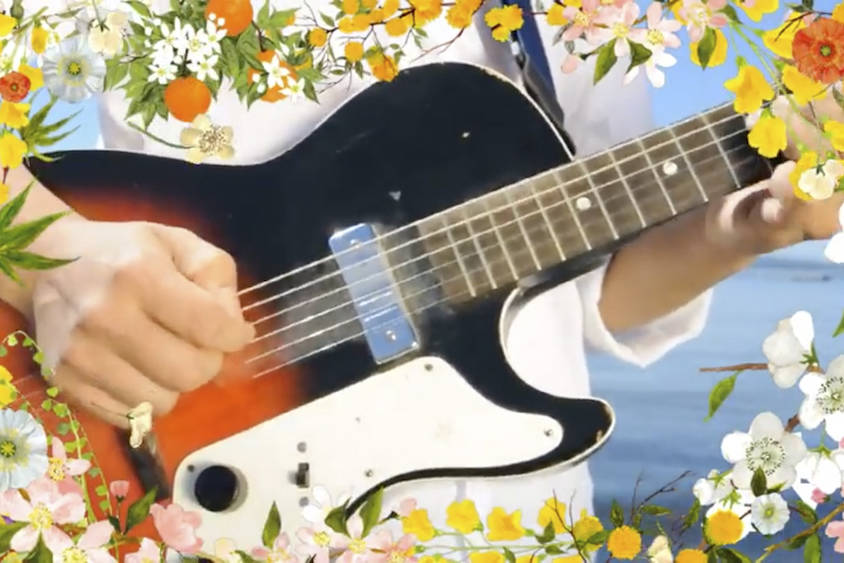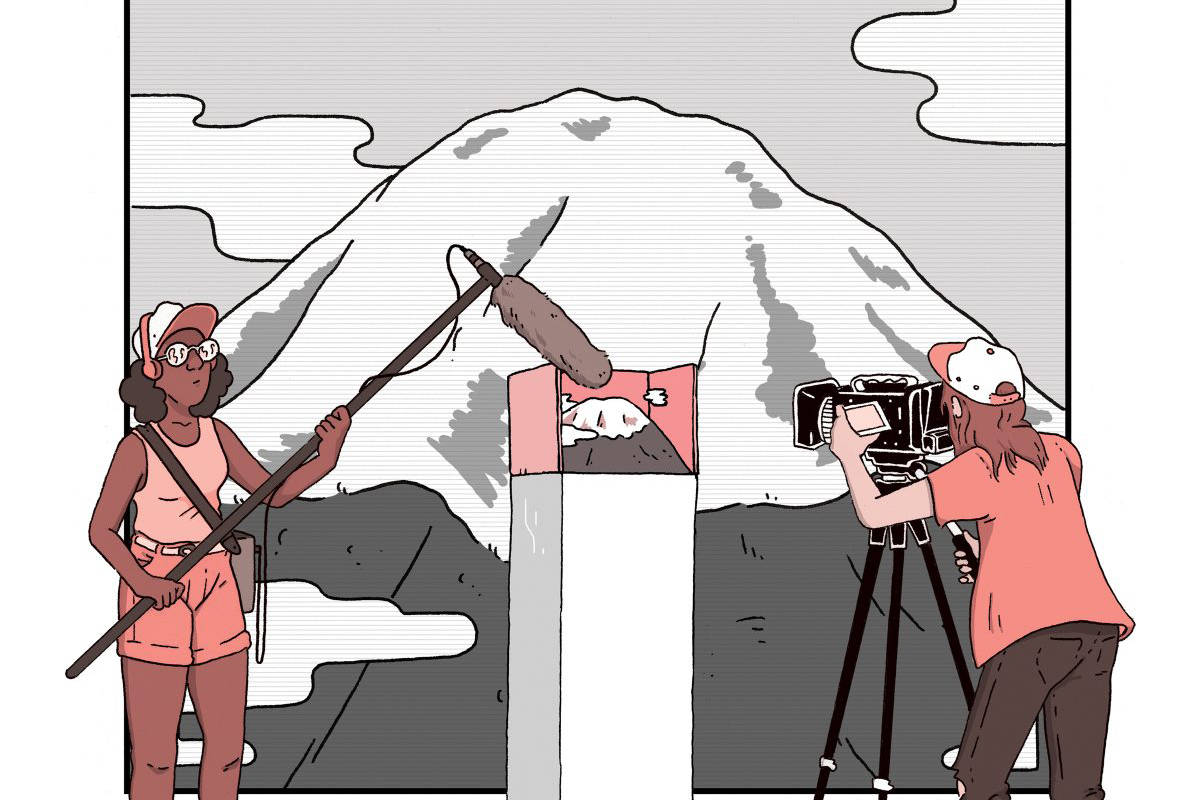Back in February, as Paul Allen’s Vulcan was ramping up to put on the inaugural Upstream Music Fest + Summit, a group of local artists and community activists raised a very good question.
According to the festival itself, Upstream hoped to “give emerging local artists the resources they need to navigate and thrive in the new music economy.” As the group pointed out, Vulcan, who is redeveloping Yesler Terrace and the Central District’s 23rd Ave. & Jackson St. Promenade, has been making it more difficult for local artists to remain in Seattle at all, let alone “thrive in the new music economy.” How then, the artists wondered, is Vulcan really executing on Upstream’s stated goals?
“I think that Vulcan and Paul Allen do see themselves as supportive of arts and culture and as philanthropists—good guys as far as the developers go,” musician and activist Julie Chang Schulman, more commonly known as Julie-C, told Seattle Weekly at the time. “So we’re giving them the opportunity to really put their money where their mouth is.”
Julie-C and a broad coalition of artists, community members and grassroots organizations banded together to write an open letter with a specific set of suggestions on ways Allen could truly give local artists the resources they need. Among them—working with stakeholders to develop community-ownership on Vulcan’s Central District and Yesler Terrace developments, more affordable housing units on those developments than required by the city, creating affordable artist spaces for rehearsals or studio work, and funding an analysis of who gets left out of the music economy, with a focus on race and social impact.
In response, Vulcan offered the group some free passes to the “Summit” portion of the festival as the event drew near—a series of music industry panels in the style of TED Talks. “We haven’t heard anything since the Summit passes were extended,” Julie-C writes of the time that has since elapsed. “If any official response was issued beyond what was published by press the first time around, we haven’t seen it.”
Despite Vulcan’s continued silence on the core issues raised by the group, Julie-C and the coalition that formed around the initiatives have continued to grow. This week, the Artist Coalition for Equitable Development, or ACED, launched its “Degentrify & Inspire” rally, the first public iteration of a new campaign by the now 70-strong group, staged outside Vulcan’s headquarters near the Chinatown/ID light rail station. “We know Vulcan did not create this trend of housing disparity and economic segregation that rears its ugly head in every urban center where a creative economy thrives—but we know Vulcan and Allen have the resources to change this trend here in Seattle and emerge as champions of equity and innovation if they do choose,” Julie-C writes.
The event marked the release of the group’s new set of suggestions for Vulcan:
“1. Dedicate 25 percent of 23rd & Jackson and each of your private Yesler Terrace developments into a community land trust to be co-owned and operated by building residents and community stakeholders.
2. Dedicate 25 percent of available commercial space in each development to be retained as co-working community-ran cultural space as defined by the city of Seattle.
3. Redesignate 30 percent of currently planned market rate residential units in each development as accessible housing for low income artists and their families who make 30-50 percent median income.
4. Implement ‘neighborhood legacy preference policies’ for commercial and residential leasing in all three developments.
5. Fund the art & cultural community’s participation in the upcoming Creative Economy Census —across shaping, implementation, and data presentation phases.”
“These five refined commitments are the result of months and months of talking to many individuals, community organizations, and new assembly members,” Julie-C writes. “There are other areas of concern we have yet to integrate into our advocacy, but plan to also seek commitments around moving forward.”
Although Vulcan has yet to respond, the group is encouraged by the community response thus far. Mayoral candidate Cary Moon has been supportive, and former mayoral hopeful Nikkita Oliver’s Peoples Party has continued its support (ACED will be present at the first Peoples Party general assembly on Sat., Sept. 23). Even more encouraging, Julie-C reports that “we have had people who run Allen Foundation-funded programs reach out to us and commit support.”
That being said, Julie-C and ACED aren’t counting their blessings just yet.
“Although we know we have friends and true advocates who are Vulcan employees, we are under no illusions about what we are dealing with,” Julie-C writes. “We know, for example, Vulcan has been a client of Fearey Group, who on their website boasts that they’ve created ‘multi-level outreach programs aimed at neutralizing opposition and building support among community stakeholders and elected officials’ for Vulcan development projects. As starving artists, cultural workers, community servants, we don’t have the resources for a PR firm. All we have is our faith in each other and what we know to be just and true, and our optimism that even if this truth falls on deaf ears, we have the collective power and agency to enact change.”
ACED’s newest suggestions come as the Promenade’s Red Apple Market, one of the only grocery stores in the Central District neighborhood, is emptying its shelves and preparing to close, a visibly dramatic signifier of the redevelopment to come. A community led project called Shelf Life has been collecting stories from the neighborhood on the importance of Red Apple—oral histories that reveal its importance not only as a place to buy food, but a de facto community center for the neighborhood. New Seasons, an upscale Portland-based grocer, is slated to replace Red Apple (note: the Central District New Seasons will be located at 23rd Ave. & Union St. in a non-Vulcan development, not at 23rd Ave. & Jackson St.). In 2015, a proposed New Seasons on Capitol Hill was vehemently opposed by labor unions, who wrote a letter to the city protesting the store’s record creating an “anti-union climate.”
“We are definitely concerned with the food desert this creates in the community, as well as plans to replace Red Apple with a non-unionized grocery,” Julie-C writies. “As an artist-lead assembly that reaches across so many sectors and silos of Seattle, we are helping to pull the pieces together to create one seamless public discourse on what inclusivity and equity really means for a historically redlined district, and in the case of Yesler Terrace, on former publicly owned land.”
ACED’s call to redesignate Vulcan’s planned chunk of market rate housing for the Promenade comes amid larger conversations Oliver and the Peoples Party had during mayoral debates prior to the primary election—namely that what is currently designated as the average median income [AMI] for affordable housing is still too high for most Seattleites.
“’Affordable’ here means available to those making 65-85 percent AMI. For one person, that’s a range of 43-57k. That’s a start, but Vulcan can and should do better,” Julie-C writes. “We are asking Vulcan to take an additional 127 units from the 424 commercial rate units remaining [at the Promenade development], and make them available to working artists and their families making 30-50 percent AMI. That’s about 25-30k annually for one person, and that is much more accessible and affordable.”
The group’s next “Degentrify & Inspire” event is slated for Wed., Sept. 27 at Vermillion, where ACED will be hosting a presentation on its goals and desired outcomes alongside live music.
Read ACED’s new open letter to Vulcan below:
Dear Paul Allen,
In your autobiography, you wrote that, “Creativity needs tangible goals and tough choices to flourish.” As creatives and cultural workers in the city of Seattle, as the people featured in your art and music festivals, summits, and museums, as executive directors, educators, and students of programs which you fund, as the artists who make up the backbone of this great city of arts and culture- we couldn’t agree more.
This is why we first came together before the inaugural Upstream Music Festival and Summit to author this open letter to you 21 weeks ago. This is why we have since grown to form the Artist Coalition for Equitable Development- an autonomous assembly of over 70+ local urban arts entities dedicated to preserving the soul of the city through creative solution-making. We believe in the importance of unity, clarity, and purpose in envisioning and achieving tangible goals. This is also why we are here today asking you to make a tough choice.
The reality is, while you have been generous and true to your musician ideals in your intention to support local arts and culture, both through your business investments and philanthropically, our side of the creative industries- that which encompasses the most underprivileged, vulnerable, and under-valued amongst our residents – is not sharing in the growth of the creative economy. Rather, we are languishing- struggling to even exist. This widening economic gap between winners and losers of the creative class is a broadly acknowledged and studied crisis across the globe. However together we have the rare opportunity to set a new precedence in reversing this disturbing trend in our own backyard for a neighborhood seeped in cultural significance and historical legacy.
The vision we are presenting with “Degentrify & Inspire” bridges your passions and expertise to fully tap into Seattle’s potential for real progress in equity and inclusivity. Due in no small part to your influence across local business, development, and philanthropic sectors, Seattle remains among the rare 5% of US cities that have relatively high performing creative economies across the domains of art, culture, technology, and management. By accepting the commitments we seek, you will build on this foundation you helped lay while proactively tackling two key dimensions of what renowned urban theorist Richard Florida calls “The New Urban Crisis” – the growing economic segregation of our city, and the “plutocratization” of the Central District- a phenomenon which describes how vibrant, innovative urban neighborhoods are turned into trophy districts.
So it is with faith, optimism, and excitement that we gather below your headquarters today to present to you our vision for Degentrification & Inspiration along the historical Yesler-Jackson Corridor and beyond. We are asking you and Vulcan to embody your missions by delivering the following commitments:
Dedicate 25% of 23rd & Jackson and each of your private Yesler Terrace developments into a community land trust to be co-owned and operated by building residents and community stakeholders.
Dedicate 25% of available commercial space in each development to be retained as co-working community-ran cultural space as defined by the city of Seattle.
Redesignate 30% of currently planned market rate residential units in each development as accessible housing for low income artists and their families who make 30-50% median income.
Implement “neighborhood legacy preference policies” for commercial and residential leasing in all three developments.
Fund the art & cultural community’s participation in the upcoming Creative Economy Census -across shaping, implementation, and data presentation phases.
Each of these commitments we seek is data-driven. Our vision is a unique synthesis of extant energies, successful practices, and existing models. Will you take on this call and emerge as a leader of innovation? Or will you defer to the superficial tactics of honoring the Central District symbolically without function?
Mr. Allen, we look forward to your response. As the one with the most power, influence, and resources in your organization to catalyze this vision, it is your audience we humbly request. As the cultural producers who make Seattle what it is, we hope you receive this invitation with sincere acknowledgment of the value we bring to the future. Together we can create a new, equitable creative economy that leaves no Seattleite behind.
In love & esteem,
Seattle Artist Coalition for Equitable Development (ACED)
SeattleACED@gmail.com








